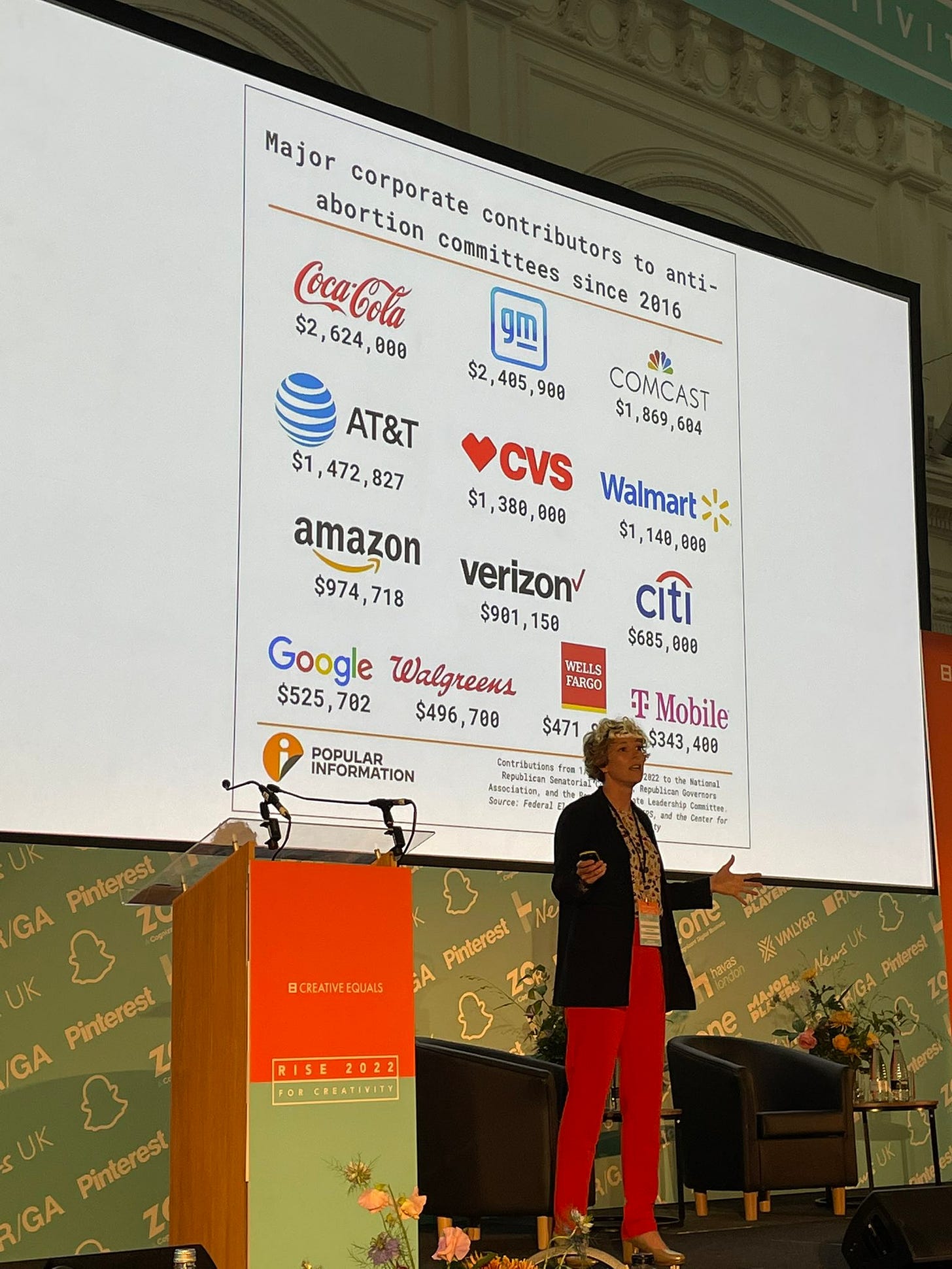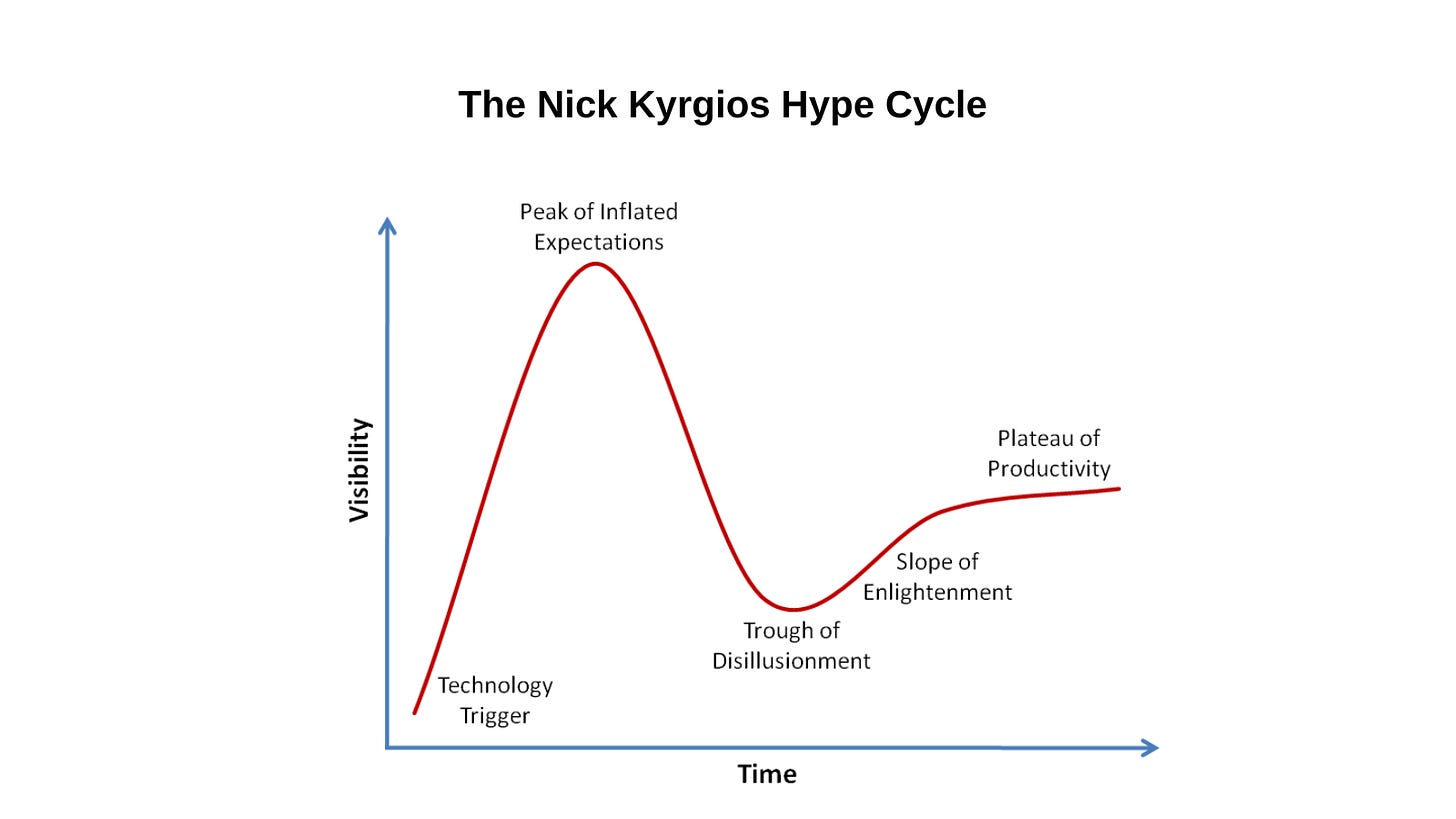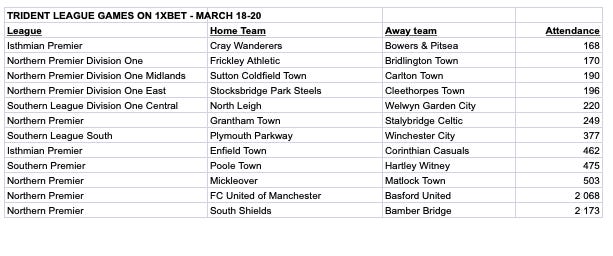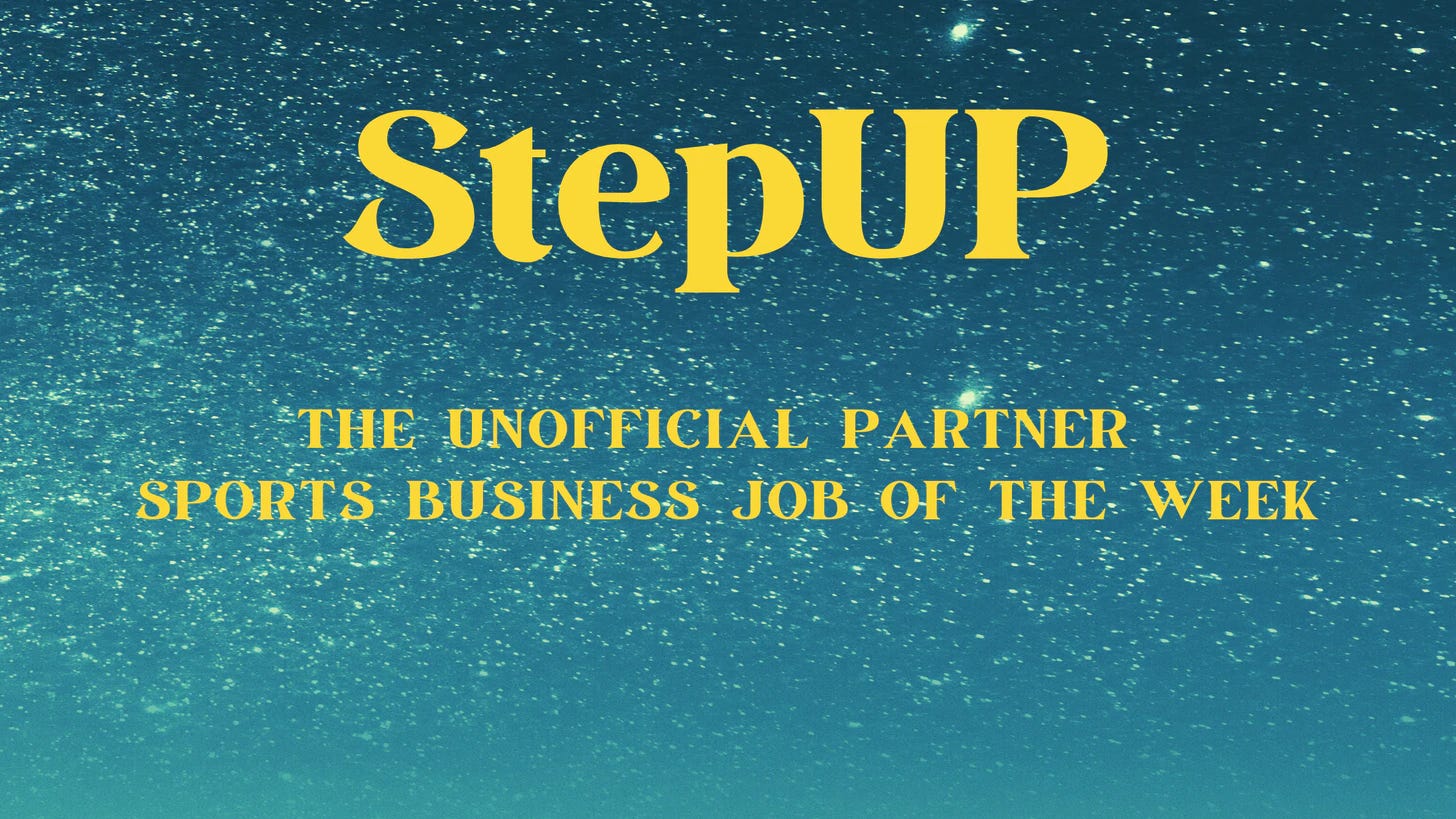The Two Cokes on Wade v Roe; Reputation v change; Beyond Meh, Web3 use cases; Betting Lobbyists Assemble; Kyrgios as Gartner hype cycle; Joey D'Urso on the meaning of Socios; New date for UP Live
Overthinking the sports business, for money
UPDATE: Web3 WTF has confirmed a date
The first UP Live event will be in London on the evening of Wednesday 21st September.
Register interest below to get first chance to buy tickets.
Small room, upmarket crowd, different format.
Register interest here. Venue announcement next week.
This newsletter is sponsored by Turnstile.
Turnstile uses real market rates to quantify the value every single sponsorship right within a deal, looking beyond the traditional media metrics to calculate the value of the Exposure, Intellectual Property and Direct Benefits.
This enables Turnstile to deliver a recommended transaction price that’s comprehensive, accurate and defensible.
If you value your sponsorships, value them properly.
Get in touch at turnstilegroup.com
The Two Cokes: empowering women through sport whilst simultaneously funding their return to 1973
What does Coke do now?
Context: The US Supreme Court voted to overturn Roe v Wade, the decision in 1973 that guaranteed American women’s constitutional right to abortion.
The sudden disappearance of abortion provision in more than a dozen states will impact the poorest women and increase America’s maternal-mortality rates, already the highest by far among rich countries.
Coke’s role, along with Amazon, Comcast, T-Mobile and many other US based corporations was to act as the bank:
Q. Why would Coke do this?
A. Business as usual.
This is what the intersection of business and politics looks like.
Spoiler: Corporations can get what they want by paying for it.
What do they want?
A moat. And those don’t dig themselves.
This, from Boingboing:
It's doubtful that any of the companies are shelling out million-dollar donations to the Republican Governors Association and other Republican groups because they care, even in the slightest bit, about what happens to abortion laws in this country. The dynamic at play is the exact same one that causes these corporate giants to continue shelling out campaign cash to the seditionists responsible for an attempted American coup. They want tax breaks, they want loopholes, they want laws written that protect their captured markets from new competition, they want federal services and consumer protection laws neutered and reworked so that consumers have to pay a higher percentage of their incomes to them, specifically.
None of which makes for zingy ad copy.
A brand like Coke is, like a political party, an attempt to present a single identity to a host of separate constituencies.
Like all of us, brands contain multitudes: Some bits are admirable, others contemptible.
Marketing’s role is to present a partial story. (I find it funny when brands are accused of ‘virtue signalling’ - that’s literally what marketing is).
Does Coke’s sponsorship of women’s sport conflict with its funding of women’s right to choose?
Of course it fucking does.
What were you expecting?
See also: Coke’s mission statement on empowering women
Build: Amazon has other questions to answer.
Do you think Amazon will be offering paid maternity leave to all the employees that will soon have abortion rights stripped from them? Will Amazon be picking up the tab for warehouse workers that have to travel through multiple states, risking being caught by "bounty" hunters, to end an ectopic pregnancy that would assuredly kill them? Of course it won't. That's the whole point of quashing unionization while slathering pro-coup and anti-rights politicians with campaign cash; keep costs low, and screw every American who isn't on the corporate board. It’s why even after Amazon pledged to stop supporting pro-coup lawmakers, their lobbyists kept right on doing it.
See also: Stop congratulating companies for making abortion a corporate perk.
Related: Don’t change the reputation, change the thing itself
See also, Sportswashing doesn’t work, pt3
The Economist on LIV Golf:
For all the changes in Saudi Arabia over the past seven years, the kingdom is stuck on its old strategy of trying to buy its way out of a shoddy reputation.
Despite some far-fetched spin from politicians and liv players, golf will not transform Saudi Arabia’s post-oil economy. Nor will it provide much live entertainment for Saudis. Only one of its eight events will be played in the kingdom, on a course north of its commercial city, Jeddah. Organisers have struggled to find broadcasters for the liv tournaments. In many places they can be watched only on streaming services, including one owned by the Saudi government.
Princes and well-paid foreign consultants may prefer costly vanity projects. But the best way to change the reputation of the kingdom is surely to change the kingdom itself.
Beyond meh - What are sport’s compelling web3 use cases?
This week’s podcast (UP254) is one of an occasional series on web3 and its applications to sport.
The plan is to build a set of questions we can pose at Web3 WTF - see top of this newsletter.
From his position as investigations writer at The Athletic, Joey D’Urso has become a go-to source of insight on the rise of digital fan tokens such as Socios and the nature of its commercial deals with football clubs.
He is championing a group rarely heard at a fan engagement conference: The fan.
I wanted to get beyond the ethics of it all. There’s plenty elsewhere dealing with that.
It’s the utility of it that interests me. Or the lack of it.
As a way in to a conversation about the next generation of the internet, digital fan tokens are weirdly pedestrian.
There’s a Buzzfeed listicle to be done on the tediously low level decisions ‘membership’ affords fans, from choice of walk in music to the colour of the captain’s armband. What are we, twelve?
Likewise, most NFTs as presented today are just not that interesting, or to borrow from @levie, are not ‘superior to the regular web in such a way that consumers adopt at scale’.
The recent crypto crash has made this question more acute. You can fly kites in a boom. When people are losing money, the whole ‘test and learn’ philosophy looks like carelessness.
So, where are the use cases that will matter? I want to collect them and do podcasts on them with people who know and are investing their own money.
This from Not Boring is a good start:
NFTs: $31.3 billion of volume in the past year on OpenSea alone
Decentralized Exchanges: the leading DEX, Uniswap, has handled over $1T in volume
DeFi Protocols: Compound, Maker, Aave, and other DeFi lending protocols have held up well during the sell-off while centralized DeFi lenders have struggled
Real-World Lending: Goldfinch and Jia help close the credit gap in developing countries.
User-Owned Marketplaces: Braintrust has doubled Gross Service Volume to $74 million in the past five months while keeping its take rate at an industry-low 10%.
Connected Device Networks: Helium and DIMO facilitate networks built by users and ecosystems of applications built on top of user-owned data.
Stablecoins: USDC, DAI, and other fully/overcollateralized stablecoins facilitate payments, especially internationally. There are $155 billion of stablecoins in circulation.
Evan Conrad Use Cases: In a blog post, Evan Conrad highlighted non-government money, cheap loans, Filecoin, Lab DAO, Radicle, Helium, Toucan, and Golden.
Sport won’t lead this, it will adapt from elsewhere. And/or it will take existing tech and make it famous to a broader audience. That’s what it does.
I’d like to build a similar sports specific list. Any help welcome.
The big ideas are easy to get behind. Decentralisation sounds great. But what does it mean in practice? A DAO is a child’s view of how governments or companies should work.
Packy McCormick went for it here: If I had to describe why I’m excited about web3 in one idea, it would be that: web3 allows for the most rapid iteration on new economic and governance models of any system humans have built.
Kyrgios as iPhone
With apologies to Gartner.
Traditionally, tennis players haven’t needed to move far beyond the centre to be deemed an ‘outsider’, with all the thrilling, and lucrative, cachet that brings.
Nick Kyrgios is mostly a welcome distraction from the diet of earnest strivers.
There comes a moment though, when the schtick becomes self fulfilling.
Saying something not because you mean it, but because it’s on-brand.
The persona becomes a uniform.
Basically, all roads lead to John McCririck.
The former racing pundit who sued IMG/Channel 4 for wrongful dismissal and lost.
His argument was genuinely touching: ‘They encouraged me to wear the clown outfit, then got tired of it’.
See also: I thought Kyrgios’ ‘nobody has come to see her’ attack on the line judge was pretty lamentable tbh.
Betting plumbs the depths
As the government lets the Premier League keep their betting sponsors, there’s a good piece by Steve Menary on what data capture looks like in the tenth rung of English football. (HT Maggie Murphy for the steer).
The Job: Ryder Cup Content Manager, DP World Tour
The Blurb: The job is to create inspiring and compelling content across both Ryder Cup and Ryder Cup Europe social media channels including Facebook, Instagram, TikTok, Twitter & YouTube, while also contributing towards editorial content distributed on rydercup.com. Working closely with the Senior Ryder Cup Content Manager, you will be accountable for delivering best-in-class content in order to maximise reach, engagement and monetisation, as well as driving the Ryder Cup content plan and strategy. Generating innovative and on-trend content while showcasing the skills and personalities of our players in an effective way is key. The role also requires a large amount of collaboration with the PGA of America and NBC when delivering content for Ryder Cup agnostic channels.
The Link: Access more information here









